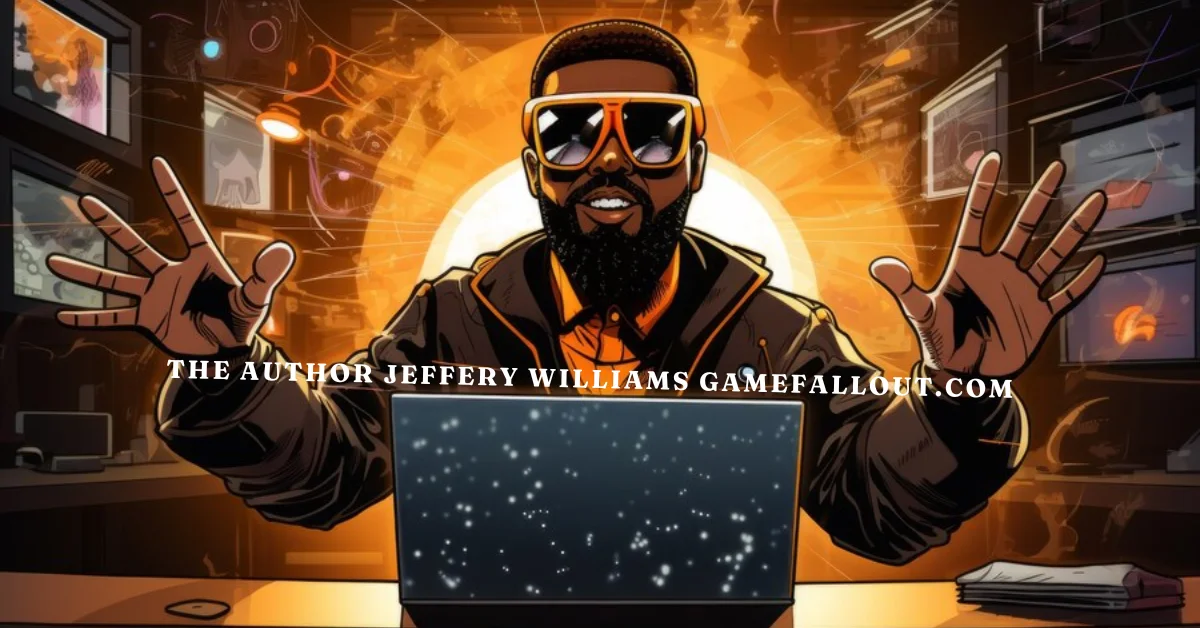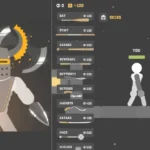Introduction to the author jeffery williams gamefallout.com
In the vibrant world of gaming, one name stands out: the author jeffery williams gamefallout.com. With a unique blend of passion for storytelling and an unwavering love for interactive entertainment, he has carved a niche that resonates with both gamers and writers alike. Dive into his journey as we explore how gaming isn’t just about high scores or epic quests; it’s also a powerful tool for enhancing writing skills. Join us on this adventure where pixels meet prose, and discover how the author Jeffery Williams is shaping the dialogue between these two dynamic realms.
The Intersection of Gaming and Writing
Gaming and writing share a captivating relationship that often goes unnoticed. Both mediums rely heavily on storytelling, character development, and world-building.
As players engage in immersive narratives, they experience dynamic plots that ignite their imagination. This interaction can inspire writers to craft richer tales of their own.
Video games are not just about graphics or mechanics; they’re complex stories waiting to be explored. Each quest offers lessons in pacing and tension, valuable tools for any aspiring author.
Moreover, game dialogue pushes writers to think creatively around character voices and motivations. The choices players make bring depth to these characters—something that echoes the essence of good writing.
With every level completed or challenge faced, gamers cultivate an appreciation for narrative techniques that elevate their own storytelling skills. The blend of these two worlds is where creativity truly thrives.
How Gaming Can Improve Your Writing Skills?
Gaming offers a myriad of opportunities for writers to enhance their craft. Immersive narratives in video games can inspire storytelling techniques. Players encounter complex characters and intricate plots, fostering creativity and depth in writing.
Additionally, dialogue is crucial in both gaming and literature. Engaging with character dialogues helps writers learn how to convey emotion succinctly. This skill translates directly into crafting believable conversations on the page.
Moreover, many games require players to make choices that affect outcomes. This element encourages critical thinking about plot development and pacing—skills vital for any writer aiming to captivate an audience.
World-building in games invites exploration of rich settings that can spark ideas for vivid descriptions or unique storylines. Gamers often find themselves fully invested in these universes, which can ignite a passion for creating their own compelling worlds through words.
Tips for Balancing Gaming and Writing Time
Balancing gaming and writing can be tricky, but it’s definitely achievable. Start by setting clear boundaries for each activity. Dedicate specific hours to writing when you’re most productive.
Use a timer technique, like the Pomodoro method, where you write intensely for 25 minutes followed by a five-minute gaming break. This keeps your focus sharp while allowing moments of fun.
Consider creating a weekly schedule that includes both writing sessions and gaming time. Prioritize deadlines and adjust your gaming accordingly so distractions don’t creep in during crucial work periods.
Another effective tip is to find inspiration from games themselves. Use narratives or character arcs as prompts for your writing projects. Letting one passion ignite the other enriches both experiences without sacrificing either.
Remember to check in with yourself regularly about how you feel regarding both activities. Adjusting based on your mood will lead to more enjoyment and productivity overall.
The Evolution of Video Games and Its Impact on Writing
Video games have transformed dramatically since their inception. From pixelated graphics to immersive 3D worlds, each leap has broadened storytelling possibilities.
Narrative depth has significantly evolved alongside these technical advancements. Early games relied on simple plots and text boxes. Now, players engage in intricate storylines filled with character development and emotional arcs.
Writers are now collaborating closely with game developers to craft richer narratives. This fusion of creativity enhances the gaming experience, making it more dynamic and relatable.
Moreover, the rise of interactive storytelling introduces new challenges for writers. How do you maintain a cohesive narrative when players can choose their paths? This question drives innovation in writing techniques within this medium.
The growing popularity of video games as an art form is reshaping perceptions about writing careers too. Writers are exploring unique opportunities that honor both their literary skills and passion for gaming.
The Future of Gaming and Its Potential in the Writing Industry
The future of gaming is poised to reshape the writing industry in remarkable ways. As technology advances, storytelling in games will become more intricate and immersive. Interactive narratives can create a new genre where players influence plotlines, leading to dynamic character development.
Writers are already exploring this synergy. They craft dialogues that adapt based on player choices, enhancing engagement. This open-ended approach encourages creativity and challenges traditional narrative structures.
Moreover, game writing is becoming a recognized discipline within creative fields. Educational programs are emerging that blend game design with scriptwriting techniques, preparing aspiring writers for this evolving landscape.
Virtual reality offers another exciting dimension. It allows writers to build worlds where users don’t just read stories; they live them. The potential for collaboration between developers and authors could redefine how we experience narratives altogether—making each story uniquely personal and interactive.
Conclusion: Embracing the Exciting Combination of Gaming and Writing
Gaming and writing are two dynamic fields that seem separate but share a fascinating relationship. The author Jeffery Williams from gamefallout.com highlights this intersection beautifully. By blending these worlds, writers can draw inspiration from the immersive storytelling found in video games.
As fans of both mediums, we have a unique opportunity to enhance our creativity and craft compelling narratives influenced by gaming experiences.
Embracing this combination opens doors to new possibilities for storytelling. Whether you’re leveling up your writing skills or exploring innovative ways to engage with your audience, the fusion of gaming and writing is a journey worth embarking on. As technology continues to evolve, so too will the methods through which stories are told—making it an exciting time for those who dare to explore this synergy further.
ALSO READ: Teasemoonga: Connecting People with AI Companions
FAQs
What is “The Author Jeffery Williams Gamefallout.com”?
Jeffery Williams is a passionate writer and gaming enthusiast behind the website gamefallout.com. He explores the intersection between gaming and writing, showcasing how video games influence storytelling and narrative techniques.
How can gaming improve your writing skills?
Gaming offers immersive narratives, complex characters, and dynamic plots, which can inspire writers to enhance their storytelling, world-building, and dialogue-writing abilities.
Can I balance gaming and writing?
Yes! By setting clear boundaries, creating a schedule, and using gaming as a source of inspiration, writers can successfully balance both passions without sacrificing productivity or creativity.
How have video games evolved in relation to writing?
Video games have transitioned from simple plots to intricate narratives with emotional arcs, prompting writers to collaborate with developers and explore new writing techniques within interactive storytelling.
What is the future of gaming in the writing industry?
The future of gaming offers promising potential for writers. With advancements like interactive storytelling and virtual reality, writers will have more opportunities to engage with dynamic, personalized narratives and shape the future of gaming content.











